That burning sensation in your muscles after a tough workout, the soreness that shows up the next morning, and the overall fatigue you can’t shake, they’re all part of pushing your limits. But what if there was a natural way to help your body recover faster and feel less worn out? Taurine might be the support your muscles didn’t know they needed.
Most people think of protein shakes or BCAAs when it comes to recovery, and sure, they help. But taurine, a nutrient your body already makes and uses, is starting to get noticed for its potential to support your recovery. It’s been linked to reducing muscle soreness, speeding up recovery, and even protecting your muscles from damage after intense exercise.
Found abundantly in muscle tissue, taurine helps regulate hydration, supports energy production at the cellular level, and keeps your muscles working smoothly. So instead of overlooking it, maybe it’s time we start paying more attention to what taurine brings to the table when it comes to recovery.
Mechanism of Taurine in Muscle Recovery
Reduces Exercise-Induced Muscle Damage
Every time your muscles contract during a workout, especially during intense or repetitive movements, tiny tears form in the muscle fibers. This is completely normal and part of how muscles grow and get stronger. But when the damage goes overboard, it can slow down recovery and leave you feeling extra sore.
Research shows that taurine can help with this. It supports the stability of cell membranes during exercise and has been shown to lower markers of muscle damage, like creatine kinase, when compared to a placebo. (NIH)
This protective effect is especially useful during eccentric movements like slowly lowering weights or running downhill, which tend to cause more strain on muscles. Taurine helps your muscle cells stay intact during these tough moments, so you can recover faster between workouts without dialing down the intensity. (NIH)
Supports Mitochondrial Function for Better Energy Recovery
That post-workout energy crash isn’t just about feeling mentally drained. It’s often a sign that your muscle cells are running low on energy. Taurine plays a key role here by supporting mitochondrial health. These tiny powerhouses inside your cells are responsible for producing ATP, which is your body’s main source of energy. (NIH)
Research shows that taurine helps reduce fatigue by improving how efficiently mitochondria function. It does this by optimizing the electron transport chain, which helps your cells restore their energy production faster after being depleted. (NIH) The result is better endurance in your next workout and shorter recovery time between training sessions. For athletes and fitness enthusiasts looking to get the most out of taurine, this mitochondrial support might be one of its most valuable benefits.
Lowers Lactic Acid Accumulation to Prevent Muscle Burnout
That intense burning feeling you get during a tough workout? It mostly comes from lactic acid building up in your muscles. This happens when your body starts running low on oxygen and shifts into anaerobic mode. While a little lactic acid is normal, too much of it can lead to early fatigue and longer recovery times.
Taurine helps manage this process by improving oxygen flow to your muscles and supporting the body’s natural systems that buffer and clear out excess acid. (NIH) Studies show that taurine can significantly reduce blood lactate levels during high-intensity exercise. (NIH) This means that adding taurine to your post-workout routine might help your body clear out metabolic waste more efficiently and recover faster. (NIH) So if you’ve been wondering whether taurine is good for muscle fatigue, this lactate-lowering effect makes a strong case.
Reduces time to exhaustion
Research has shown that taurine supplementation can delay fatigue and improve endurance by significantly lowering serum ammonia levels. (NIH) This reduction helps to push back the point of exhaustion, giving you more stamina during intense exercise.
Additionally, taurine has been found to lower inorganic phosphorus levels in the blood during high-intensity workouts. (NIH) This likely prevents phosphorus from accumulating in the cells, allowing muscles to keep functioning properly and helping you maintain performance for longer.
Accelerates Repair of Damaged Muscle Fibers
Beyond preventing damage, taurine can increase muscle function, decrease oxidative damage, and increase antioxidants during strength exercise. (NIH) It stimulates taurine and mitigates inflammation-induced secondary damage, which facilitates muscle recovery during strength exercise. Taurine supplementation recovered significantly faster following damage. (NIH)
Taurine decreases delayed oxidative stress and attenuates arterial stiffness after eccentric exercise through its antioxidant properties. Taurine improves muscular strength and reduces muscle fatigue by reducing oxidative stress. (NIH) For athletes interested in taurine effects on muscle growth, this balanced approach to recovery reduces damage while supporting repair, creating an optimal environment for adaptation and development.
Choosing the Right Taurine Supplement for Optimal Recovery
While energy drinks often tout taurine as an ingredient, they usually contain only small amounts and are often paired with less helpful ingredients like excessive sugar and artificial stimulants. For real recovery benefits, you’ll need a more focused approach.
Research suggests that for most athletes, a daily taurine dose of 1-3g is ideal for recovery, with timing before or after a workout showing similar benefits. However, emerging evidence points to taurine working even better when combined with other recovery-boosting compounds, especially creatine monohydrate.
This makes sense from a scientific standpoint: taurine primarily helps protect cells and supports energy recovery, while creatine works to enhance phosphocreatine stores, which provide immediate energy during high-intensity efforts. Together, they address both short-term energy needs and long-term recovery, offering a more complete strategy for improving performance.
Wellbeing Nutrition's Creatine Monohydrate HCL combines pharmaceutical-grade creatine with taurine and other supporting amino acids for recovery in a convenient, easily absorbed formula designed specifically for athletes seeking both performance and recovery benefits. Unlike many supplements for muscle soreness that address only a single aspect of recovery, this comprehensive formula tackles multiple recovery pathways simultaneously.
With proper dosing and consistent use, taurine supplementation represents one of the most evidence-backed approaches to accelerating recovery, reducing soreness, and improving training consistency. Whether you're a competitive athlete or simply looking to minimize discomfort after workouts, optimizing your taurine levels could be the edge your recovery protocol needs.
Conclusion
The growing research on taurine’s recovery benefits makes it clear that this amino acid is becoming a vital part of an athlete's routine. It helps protect muscle cells, boosts energy production, reduces lactic acid buildup, supports hydration, and speeds up recovery, basically covering all the key areas.
When combined with proper nutrition and enough rest, taurine could be the missing piece that turns your recovery from something slow and painful into something faster and more effective. Whether you’re looking to train more frequently, reduce post-workout soreness, or just improve your body’s natural recovery process, taurine is worth considering as part of your overall approach to performance and wellbeing.







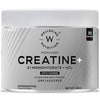
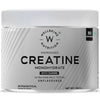






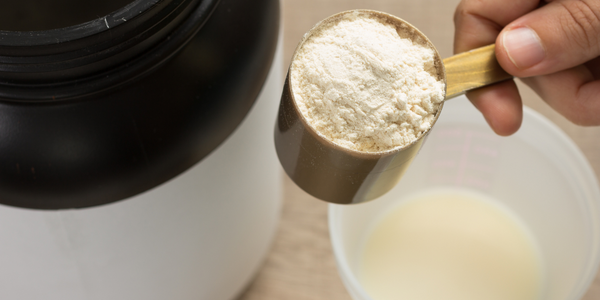

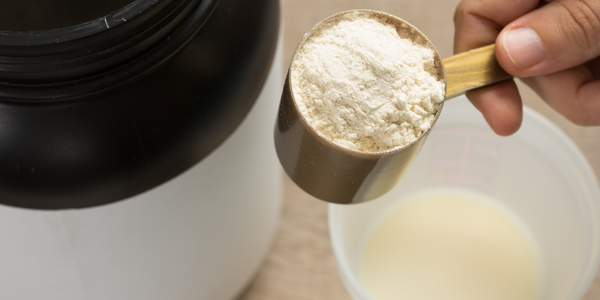
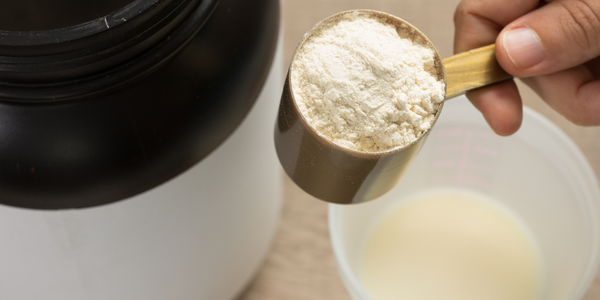










 DOWNLOAD NOW
DOWNLOAD NOW
